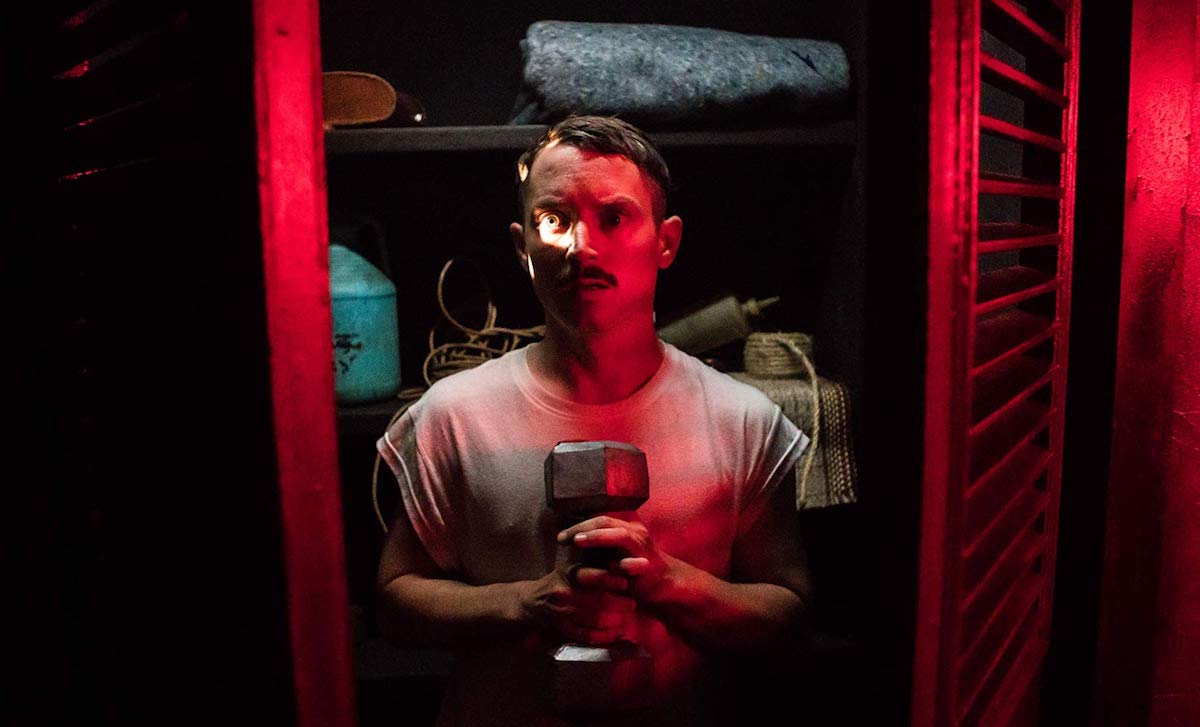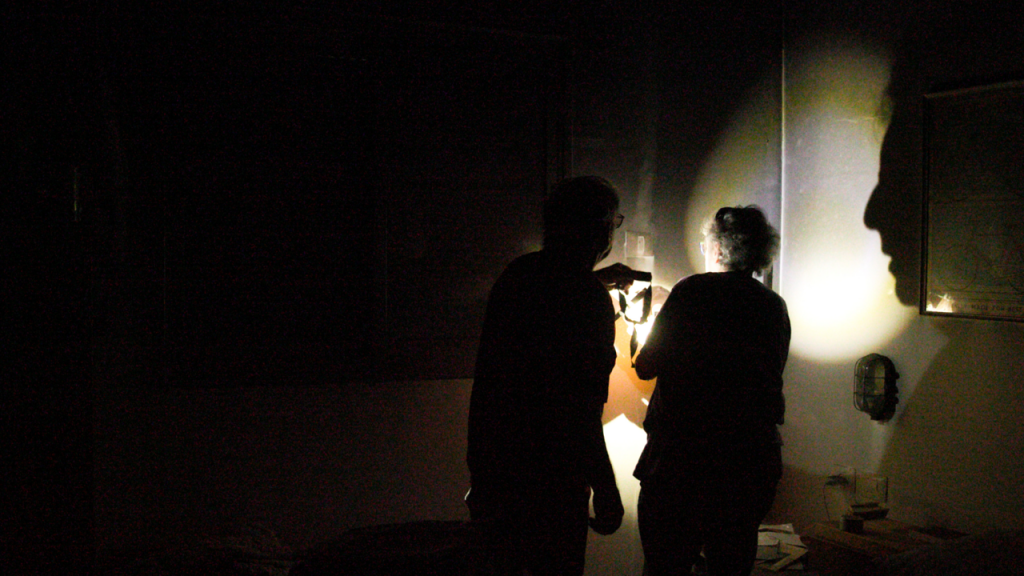Knowing a little about Come to Daddy’s creative pedigree is probably the biggest indicator of your potential reaction to this wild and bizarre horror thriller. It’s the directing debut of Ant Timpson, best known before now for producing films like the Kiwi haunted house film Housebound, the retro-styled post-apocalyptic Turbo Kid and The Greasy Strangler, which is…an acquired taste. The script comes from Greasy Strangler’s Toby Harvard, based on Timpson’s concept.
All that is to say, Come to Daddy comes from a couple of filmmakers with singular taste, and whose work is usually a matter of style and moxie over substance. If you’re on that wavelength, Come to Daddy can be a freaky, rollicking good time. If you’re not, no amount of convincing is going to get you there. Timpson’s movie takes a while to get to its actual plot and the action therein. Once that final act hits, the effect is something like a hallucinogen kicking in: it’s a lot of crazy at once, some horrific, some darkly delightful, but all of it compelling.
Elijah Wood plays Norval Greenwood, a pretentious L.A. scenester who’s come out to a remote, unnamed coastal location at the request of his estranged father. Norval hasn’t seen his dad since his early childhood, when he abandoned Norval and his mother. He’s hopeful that the letter could be the start of a relationship.
The man Norval meets, however, doesn’t make that reconciliation easy. Brian (Stephen McHattie) is a bitter alcoholic who resents Norval’s presence, and seems to detest everything about him. To be fair, there’s a lot to dislike about Norval, from his namedropping to his ego-boosting to his idiotic haircut. He’s got problems, but he’s not an awful person. So why send that letter in the first place? Norval’s attempt to answer that question takes the plot veering in violent, unexpected directions that are best experienced cold. Suffice it to say that Harvard’s script doesn’t just avoid clichés; it goes off the beaten path entirely, waving its arms erratically while doing so.
Much of Come to Daddy rests on Wood’s shoulders — or rather, his big, emotive eyes. Timpson makes excellent use of Wood’s baby blues, which betray Norval’s vulnerability, anxiety and fear at various times, as well as the lost kid within. They’re so important a feature in helping us connect with Norval that two other characters bring them up in separate instances. Putting so much of the emotional weight of the film on him almost feels unfair, as if Wood’s childlike face is a resource Timpson is only too happy to exploit.
While Wood does a lot of the work, he’s not the only one putting forth epic effort. The always-welcome McHattie gets to use his wild eyes and intense features to their fullest extent as Brian. Indie horror staple Michael Smiley is both frightening and ridiculous, committing to some wonderfully goofy dialogue. Unexpectedly, Martin Donovan also shows up in a role I won’t spoil, though his natural geniality makes him feel somewhat misplaced here; he belongs in a much gentler movie than this one.
Come to Daddy is a somewhat disjointed movie, with the transition between its three acts so jarring that it almost feels like three different stories. That issue can almost be forgiven by the film’s bananas climax, but that feeling of disconnection returns as soon as the adrenaline subsides. As a first outing from Timpson, it’s a good start, and certainly remains true to his tastes. Whether those particular tastes align with yours, you’ll have to decide for yourself.



